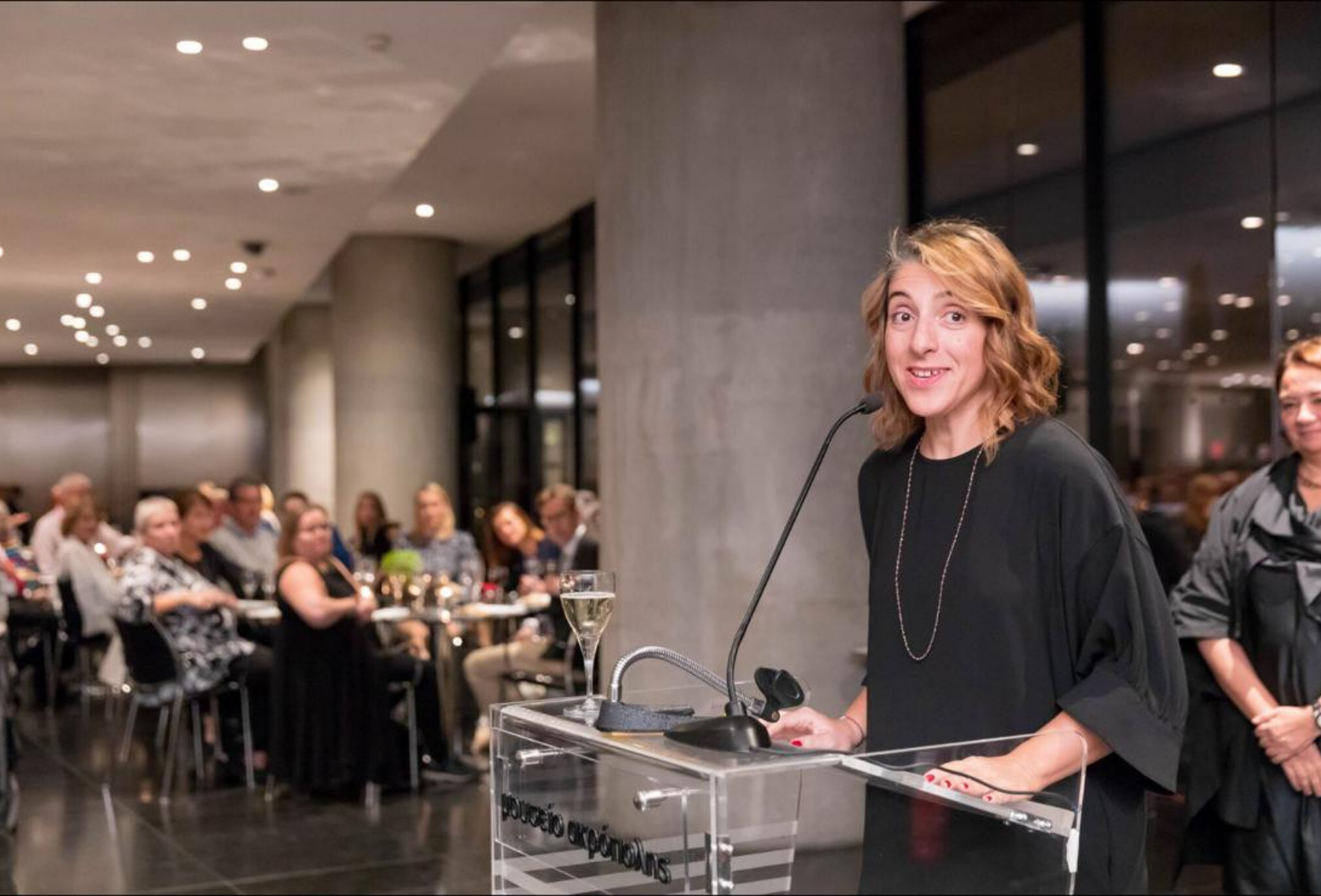
Stories Talk | Presentation Skills and Effective Storytelling
Stories Talk | Presentation Skills and Effective Storytelling
By Mia Kollia
Traslated by Alexandros Theodoropoulos
Once upon a time a radiologist was just about an x-ray. Today, radiologists read ultrasound and special images better than "god" while they operate bloodlessly with stent issues, extremely difficult operations.
A woman of such "type", a radiologist with a bionic eye and with a long career in France and Greece, researches even more accurate breast imaging techniques so that women will no longer be afraid of this type of cancer.
Her mind and eyes literally save lives. Radiologist Alexandra Athanasiou recently became a member of the Executive Board of the European Society of Breast Imaging - an honorary title for a Greek woman - and a member of the Working Group of the European Society of Breast Specialists for the Update of Quality Control in Breast Centers.
After finishing, certainly with honors, the Medical School of Athens she received medical specialty in Radiodiagnosis and Medical Imaging. Then she specialized in Oncology and Breast Imaging in France, where she worked for 12 years at the two largest oncology hospitals of Paris, Institut Curie and Institut Gustave Roussy.

In parallel with the clinical work, she had a strong research interest in more recent breast imaging techniques (Multiparametric Magnetic Mammography, Tomosynthesis, Artificial Intelligence), with collaborations that last to this day. In 2015 she returned to Greece where she took over the management of the Breast Imaging Department and the scientific management of the Breast Centre of “Mitera” Hospital.
Her vision is the holistic approach to breast diseases and the provision of optimal services of personalized pre-symptomatic breast screening to women in our country.
In France, where she worked for many years, she excelled, operating perfectly in a more organized system and then more supportive to doctors. Access there, mainly to research, is easier and the clinical routine is free from practical frictions.
In Greece, on the other hand, any shortcomings make Greeks more resourceful and, of course, more communicative with their patients. The initial distrust that accompanies every turning point in the career of successful people came for her as well:
I experienced distrust from my French colleagues when I first started working in oncology hospitals in Paris, or even from some Greek colleagues when on my return I tried to apply the international operating protocols to my country. The solution in each case is the same: hard work and in-depth scientific dialogue! Science always wins when you trust it”.
Prevention in medicine is half the case, if not the whole case. With great pleasure, Alexandra Athanasiou realises that now more and more Greek women offer themselves the attention and medical examination they deserve. "Information clearly helps, if it is clear and documented, otherwise it can be confusing.
Most often, omissions in pre-symptomatic screening are associated with lack of information - a classic example of "why doing a mammogram if I do not have a family history" while we know that the majority of breast malignancies are sporadic lesions.
We still hear "why doing mammography after menopause, since I no longer have hormones, so I am not at risk "while we know that age is a risk factor and the older we get the more theoretical risk there is. It is the responsibility of all of us who deal with breast diseases to offer clear and personalised information according to the risk profile of each woman.
A second point that all of us see is related to the indigenous culture of women in Greece to prioritize family, children, obligations and leave themselves last.
Fortunately for the younger generations this is about to disappear. Third and equally important is the fear of the test result, which fortunately is becoming more and more limited. "Women now know that early prevention saves lives."
Alexandra Athanassiou is a doctor who is constantly updated because medicine changes quickly and decisively. This takes effort and time, but the joy of learning is the driving force. "No need to say that with all the online updates and access to articles, conferences, speeches, etc., knowledge circulates almost osmotically nowadays!"
The most important moment in her career was when she decided to go to France. When she passed the concours competition to become a Praticien Specialiste at Institut Curie, it was the focal point for her. She worked in this world - class hospital for 10 years and literally cultivated her work there at every level - clinically, research and, most importantly, communicating with patients.
What are the doctors' breaths, one wonders, when monomania characterises most of them? "Breaths are more than necessary; they are the oxygen of our neurons so they can be able to function properly. Let us not forget that our own spiritual fullness, mental joy and balance mean better practice of our Medicine”!
#HerStory